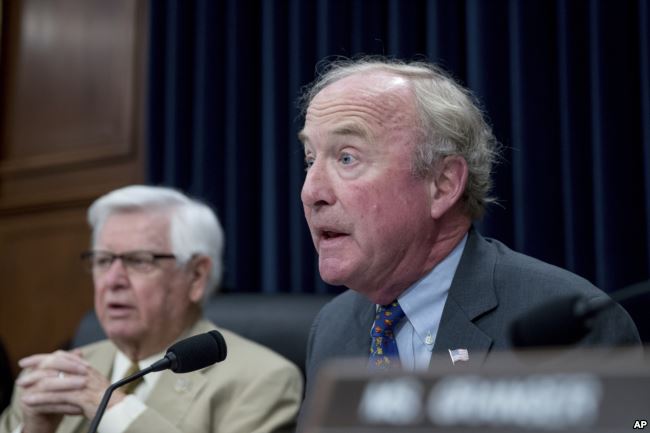
US State and Foreign Operations committee has advanced a bill that applies strict condition on Foreign Aid to Pakistan.
House Appropriations Subcommittee of State, Foreign Operations, and Related Programs considered the Fiscal year 2018 State and Foreign Operations Appropriation bill yesterday. The bill was advanced by the committee.
Subcomittee’s chairman Hal Rogers, who is a Republican, asked members of the panel to support the bill.
“This bill strikes the appropriate balance of fiscal responsibility and support for United States diplomatic engagement and foreign assistance,” Rogers said.
“This bill strikes the appropriate balance of fiscal responsibility and support for United States diplomatic engagement and foreign assistance,” Rogers said.
The bill, which was released on the committee’s website on 12 July 2017, suggested strict controls are to be applied on any civil or military aid to Pakistan in future.
According to the bill, none of the funds appropriated or otherwise made available to Pakistani Government under civil or “Foreign Military Financing Program” may be made available unless US Secretary of State certifies and reports to the committee that Pakistan has fulfilled the conditions of the bill.
These conditions include cooperating with the United States in counter terrorism efforts against the Haqqani Network, The Quetta Shura Taliban, Lashkar e Tayyiba, Jaish-e-Mohammed, Al-Qaeda and other domestic and foreign terrorist organizations. Pakistan also has to prove that it has taken effective steps to end support for such groups and prevented them from basing in Pakistan and carrying out cross border attacks into neighboring countries.
Afghanistan alleges that Pakitan has been supporting Taliban, which are based inside Pakistan and carry out cross border attacks against Afghan and Allied forces.
As per the bill, Pakistan has to prove it is not supporting terrorist activities against United States or coalition forces in Afghanistan. Pakistan’s military and intelligence agencies have to stop intervening extra-judicially into political and judicial processes in Pakistan. Pakistan Government also has to stop financing or otherwise supporting schools affiliated with, or run by the Taliban.
Pakistan also has to dismantle any improvised explosive device (IED) networks inside Pakistan.
A significant demand has also been made in the bill in relation to Pakistan’s nuclear arms. Pakistan has to prevent the proliferation of nuclear-related material and expertise as per the bill. Analysts speaking to TBP believe that the demand suggests US has either suspicions or information that Pakistan is involved in nuclear proliferation.
Pakistan also has to issue visas in timely manner for US visitors engaged in counter-terrorism efforts in Pakistan. US authorities in past have complained that Pakistan uses delaying tactics when it comes to issuance of visas to US officials.
Pakistan also has to ensure that it provides access to humanitarian organizations to detainees and other internally displaced persons (IDPs). Amnesty International and HRW in past have alleged that Pakistan completely restricts access to thousands of Baloch activists under custody. Hundreds of thousands of IDPs from Balochistan have also not been allowed to receive humanitarian aid from NGOs.
It must be noted that Ted Poe, a Texas Republican, has also tabled two bills in US Congress to put pressure on Pakistan. H.R. 1499, the Pakistan State Sponsor of Terrorism Designation Act, would require the State Department to assess Islamabad’s long history of cooperating with terrorists and determine whether or not Pakistan is a state sponsor of terrorism. H.R. 3000 would revoke Pakistan’s Major Non-NATO Ally status. Mr. Poe is also a member of the Foreign Affairs Committe and serves as chairman of the Subcommittee on Terrorism, Non-proliferation and Trade. He accuses Pakistan of duplicity in its relationship with US.
Mr. Poe welcomed the recent developments regarding advancement of fiscal bill and tweeted:
Today, Congress took a step forward to end Pakistan’s betrayal of the US with the addition of an additional certification requirement.
— Ted Poe (@JudgeTedPoe) July 14, 2017































